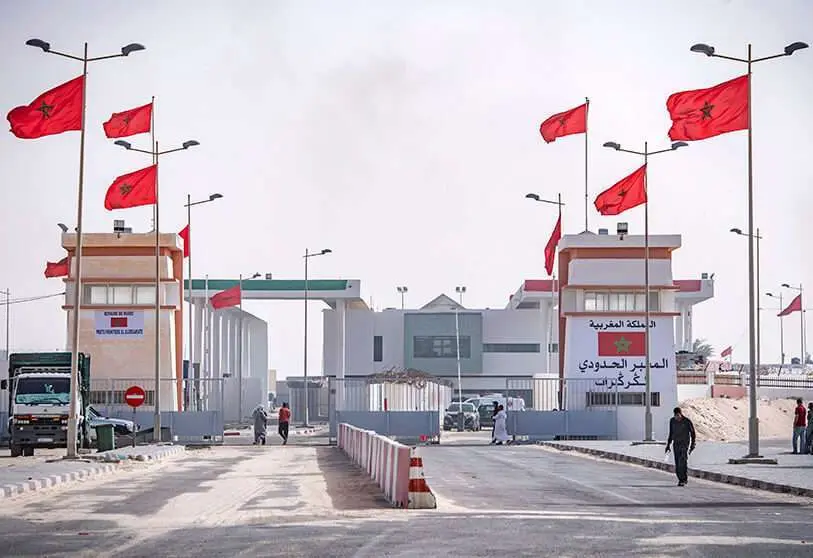The solution to the Western Sahara problem lies in Europe

Following German President Frank W. Steinmeier's statement in a letter to King Mohammed VI of Morocco, claiming that "the Moroccan proposal for autonomy is a good basis for resolving the conflict", Europe is emerging in the current conditions as the only framework capable of outlining a feasible solution to overcome the conflict arising from the Spanish decolonisation of the Sahara.
Despite appearances and despite being the world's leading superpower, the United States does not have sufficient leverage to push the parties to the conflict to negotiate, nor does it offer guarantees that eventual agreements can be translated into viable solutions. Donald Trump's declaration to recognise "Morocco's sovereignty over Western Sahara" has put an end to its mediation possibilities. For Washington, the Sahara problem is a minor issue, and after the failure of several of its political and diplomatic heavyweights, such as Special Representatives Charles Dumbar, William Eagleton and William Swing; Special Envoys James Baker III and Christopher Ross; or the setbacks suffered by several of its UN representatives, Colin Powell and Madeleine Albright, all this has led the White House to disengage from the problem, whose balance sheet is negative for US diplomacy.
The other major powers, Russia and China, despite their recent pragmatic approaches to the parties to the conflict and some attempts at mediation, have neither the will nor the weight to succeed in resolving the crisis. As for the African Union, it has never had relevant weight, nor has it been admitted by the parties.
It is also impossible to successfully implement a global international proposal, given the inadequacy of the UN: the Security Council, the highest executive body of the international community for resolving conflicts, has devoted 74 Resolutions to the Western Sahara issue; and the General Assembly, another 134 Resolutions on the same conflict. None of them have served to advance the solution of the conflict.
The only current framework is that offered by Europe. The parties to the conflict, the three North African countries of Morocco, Mauritania and Algeria, plus the armed movement Polisario Front, have a dense accumulation of relations with Europe that give Europe the possibility of playing a decisive role, not as a supranational entity as the European Union of 28, but as a group of countries that should bring together at least five of them (Germany, France, Italy, Great Britain and Spain), extendable to four others (the Netherlands, Denmark, Sweden and Portugal).
However, there are two preconditions that this group of European countries must respect: they must refrain from following the path of the United States by recognising "Moroccan sovereignty" over the former Spanish colony; and they must offer legal guarantees, accepted as such by the parties, that the modalities and the negotiation process will be carried out according to what they have agreed. In other words, the European group should call on the four participants - the same ones who have already met in Switzerland - to focus their talks and negotiations on the formula of "an autonomous entity of Western Sahara within the Kingdom of Morocco", without excluding any of the modalities offered by the formula: association, regionalisation, federation or confederation.
Pretending that any European country should follow in the footsteps of the United States, as some members of the Moroccan Royal Court are calling for, is a mistake that can only lead to the impossibility of serious negotiations to resolve the conflict. Mohammed VI knows this from his direct talks with European heads of state and government. Demanding that France, Britain, Germany, Italy or Spain recognise Morocco's sovereignty over the territory would remove any possibility of dialogue with Algeria and the Polisario Front. Only on the basis of the current position of these European countries towards the conflict, a cautious position of balance, can the indispensable dialogue with the parties be maintained. It is not a question of Europe offering a room for dialogue, or a discreet place for private meetings between the parties, but of its involvement. The joint appeal of the European countries closest to the conflict to the four actors must include a commitment to take part in the negotiations to find a consensual and pragmatic solution.
So far, countries or personalities that have attempted mediation have failed by disengaging from the negotiations and leaving the parties alone. These European countries, acting together, have the chance to find the shape of the region's future, the main protagonists of which will continue to be the three Maghreb countries and the Sahrawi political representation, in which other formations representing their populations must find a place.

